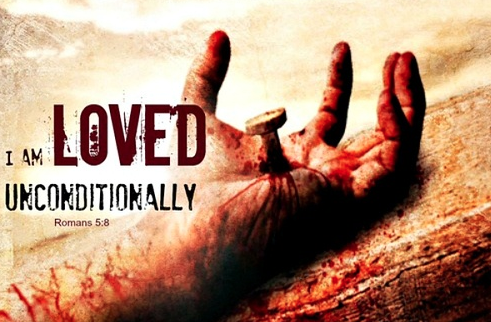
By Obinna Ejianya (9News Nigeria – Melbourne, Australia)
The death of Jesus Christ is a central theme in Christianity, and according to the Bible, there are several reasons why Jesus had to die in order to save humanity and reconcile them back to God. Let’s explore these reasons in detail.
- Sin and Separation from God:
The Bible teaches that all human beings have sinned and fallen short of God’s glory (Romans 3:23). Sin creates a separation between humanity and God, breaking the harmonious relationship that was originally intended. The consequence of sin is death (Romans 6:23), both physical and spiritual. Therefore, to restore the broken relationship and provide a way for humanity to be reconciled with God, a sacrificial atonement was necessary. - Atonement and Redemption:
Jesus’ death on the cross serves as the ultimate sacrifice for the forgiveness of sins. In Ephesians 2:14-16, it is explained that Jesus, through His death, broke down the dividing wall of hostility and made peace between God and humanity. In Ephesians 5:25, it is stated that Jesus loved the church and gave Himself up for it, emphasizing the sacrificial nature of His death. By shedding His blood on the cross, Jesus offered redemption and atonement for the sins of mankind, providing a way for forgiveness and reconciliation. - The Fulfillment of Prophecy:
Throughout the Old Testament, there are numerous prophecies that foretell the coming of a Messiah who would suffer and die for the salvation of humanity. For instance, in Deuteronomy 6:5, Romans 6:23, and 1 John 4:10, the concepts of love, sin, and sacrifice are intertwined, pointing to the need for a Savior. By fulfilling these prophecies, Jesus demonstrated His role as the long-awaited Messiah and Savior. - Substitutionary Sacrifice:
Jesus’ death on the cross is often referred to as a substitutionary sacrifice. In Galatians 3:13, it is stated that Jesus became a curse for humanity, taking upon Himself the punishment that was rightfully ours. Similarly, Romans 5:10 explains that while humanity was still sinful, Christ died for us, reconciling us to God. This concept highlights the selfless act of Jesus, who willingly took the place of sinners and bore the consequences of their sins, offering them a way to be justified before God. - God’s Love and Grace:
The death of Jesus Christ is ultimately an expression of God’s immense love and grace toward humanity. John 3:16 is a well-known verse that encapsulates this idea, stating that God loved the world so much that He gave His only Son, so that whoever believes in Him would have eternal life. Romans 5:8 further emphasizes this love, highlighting that God demonstrated His love for us by sending Christ to die for us while we were still sinners. Jesus’ death serves as the ultimate demonstration of God’s love and His desire to reconcile humanity to Himself. - Victory over Sin and Death:
Through His death and subsequent resurrection, Jesus achieved victory over sin and death. In Galatians 2:20, it is explained that Jesus gave Himself up for humanity, and in doing so, sin’s power over humanity was broken. Matthew 20:28 and John 3:16 reinforce the concept that Jesus came to give His life as a ransom for many, offering salvation and eternal life. Jesus’ resurrection serves as a testament to His power over death and the assurance of eternal life for those who believe in Him. - Freedom from Condemnation:
In Romans 8:1, it is stated that there is no condemnation for those who are in Christ Jesus. Through His death, Jesus provided a way for humanity to be freed from the condemnation and guilt of sin. Romans 6:23 and 1 John 4:10 reiterate the idea that the gift of eternal life comes through Jesus’ sacrificial death, which offers forgiveness and reconciliation with God. - Example of Sacrificial Love and Faith:
Jesus’ death serves as an example of sacrificial love and faith for believers to follow. 1 Peter 3:18 states that Christ suffered for sins once for all, the righteous for the unrighteous, in order to bring us to God. This exemplifies the selflessness and obedience of Jesus, encouraging believers to live in a similar manner. - Salvation and Eternal Life:
In John 3:18 and 36, it is emphasized that belief in Jesus is essential for salvation and eternal life. Jesus’ death provides the means for salvation, and those who accept His sacrifice and have faith in Him receive the gift of eternal life. This theme is echoed in 1 Corinthians 2:9 and John 17:3, which highlight the glory and knowledge of God that is made available through Jesus.
In conclusion, according to the Bible, Jesus Christ had to die in order to save humanity and reconcile them back to God. His death accomplished the atonement for sin, fulfilled prophecies, served as a substitutionary sacrifice, demonstrated God’s love and grace, achieved victory over sin and death, freed believers from condemnation, set an example of sacrificial love and faith, and provided the means for salvation and eternal life. The death of Jesus Christ is a cornerstone of the Christian faith, representing the ultimate act of love and redemption that offers hope and reconciliation to all who believe in Him.
By Obinna Ejianya (9News Nigeria – Melbourne, Australia)
